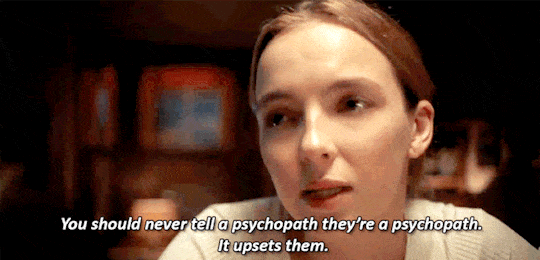Psychopathy
 |
| Dr.Mark Freestone |
"When I first started [in his profession as a psychiatrist specializing in psychopathy], I thought, these guys must be terrifying, Hannibal Lecter-style manipulators.""[Angela Simpson] presented herself in the same way as a male psychopath [exhibiting the same] intense eye contact and disinterest in emotionally engaging with questions [as serial killer Ted Bundy in his infamous confession tapes].""Because of a neurological dysfunction, psychopaths do not learn from punishment. If you put them into a punitive system they learn absolutely nothing, which means they're just as likely to re-offend.""It's so easy to write off an angry violent man as a lost cause. But nobody is defined entirely by being a psychopath: there is always an individual human with a history, wants and needs underneath that callous exterior."Dr.Mark Freestone, lecturer, Queen Mary University of London
Dr.Freestone worked on the Dangerous and Severe Personality Disorder program from 2004 to 2013, a project aiming to understand and potentially alter the behaviour of dangerous criminals. He has since written about his experiences in a newly published book, Making a Psychopath. Dr.Freestone, through his experience, studied Charles Bronson, "Britain's most notorious prisoner" and the Yorkshire ripper Peter Sutcliffe. Arriving at the opinion that psychopathic personalities are bizarre and complex.
In 1941, pioneering psychiatrist Dr.Hervey Cleckley studied 15 criminal patients in the U.S., identifying a series of common traits inclusive of pathological lying, superficial charm, a lack of empathy or guilt, and grandiose delusions, arguing that psychopathy is not a mental illness. To the present, psychopathy is not listed in the authoritative Diagnostic and Statistical Manual of Mental Disorders handbook. It is instead spoken of as a "personality disorder", affecting one in 100 people.
Although he has lent his expertise to sketching out the villainous personalities of filmed psychopaths entirely imagined, he thinks of the characters portrayed as not nearly as complex as the variety of psychopathic behaviours he has encountered throughout his medical career. He believes the disorder to be caused through combinations of both nature and nurture, beginning with the fact that many psychopaths are born with that peculiar genetic predisposition. That would include a lower-than-average propensity for fear, activated by a traumatic upbringing.
The condition is generally diagnosed with the use of Dr.Robert Hare's 1970 checklist which had been brought back into the medical eye by Jon Ronson's manual, The Psychopath Test where an individual is asked to rate themselves from '0' (no match) to '2' (a reasonable match) on 20 personality traits with the inclusion of: "Do you display a lack of remorse or guilt?", and "Do you fail to accept responsibility for your own actions". The diagnosis can be made when a score of 30 is achieved out of 40.
Dr.Freestone, however, highlights that over 15,000 combinations of responses exist that could still result in that same total. In his book, Dr.Freestone writes about a pale young man who "looked as though he might fall over from the breeze" who had been abused by his father. The young man's "absorption with his self-loathing made him curiously dispassionate to, even callous about, the pain he inflicted on others." When he attacked a vicar who had been attempting to help him, he ended up in prison.
 |
| Gif from TV Fanatic — scene from ‘Killing Eve.’ |
Dr.Freestone admits that female psychopaths, rare but not unknown "terrifies me far more than men". Of 2,040 criminal psychopaths identified in the 2000s, a mere 40 were women. Women tend to be depicted on screen as glamorous femme fatales using sex to manipulate men. Dr.Freestone points out, however, that female psychopaths exhibit precisely the same arrogance and self-delusion as their male counterparts. He uses as an example Angela Simpson who in 2009 drove a three-inch spike through the head of a disabled man in Arizona.
Where Dr.Freestone differs from the general consensus on psychopathy is his belief that with the right help, even the most bloodthirsty of psychopaths are capable of being reformed. He points to a schoolboy with abusive stepfathers who himself became a violent young man, committing a series of sexual assaults. After volunteering for an in-prison mental health program with a noted psychotherapist, he straightened out. He lives now in London with two dogs, violence-free in a stable relationship for the past nine years.
In the Dutch system, Dr.Freestone points out, criminals are given a single point of psychiatric contact throughout their lives, instead of moving from therapist to therapist and he believes this is a cardinal example of an enlightened approach to retrieving people from the abyss of self-destructive psychopathy, by having them exposed to the support of one individual whose professional acumen and guidance can win the trust of a psychopath to find the path to normalcy.
Labels: Dr.Mark Freestone, Psychopathy

<< Home